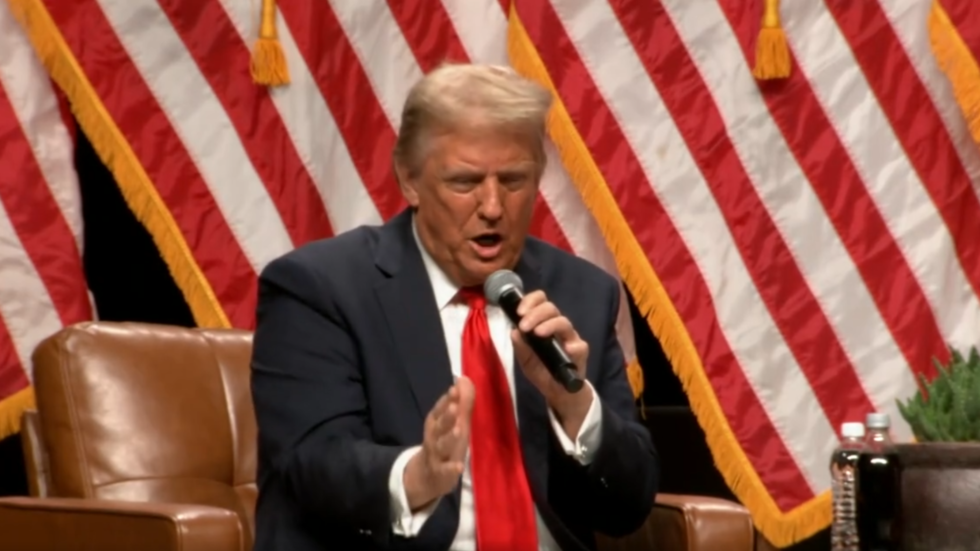During a recent rally in Glendale, Arizona, Donald Trump, a Republican presidential candidate, openly criticized President Joe Biden’s administration for its role in strengthening the relationships between Russia and China, asserting that, if re-elected, he would work to “un-unite” the two nuclear superpowers. In an interview with journalist Tucker Carlson, Trump articulated his belief that the United States is currently in decline and labeled it a “failing nation.” He described Biden’s foreign policy decisions as detrimental, suggesting they have pushed countries like Russia, China, Iran, and North Korea closer together. He recalled a lesson from his Wharton School professor, emphasizing the strategic danger posed by an alliance between Russia and China.
Trump highlighted the consequences of recent American policies, claiming that Biden’s actions have inadvertently led to a partnership between Moscow and Beijing. He stated that their alignment was largely due to changes in global oil politics. Critically, he mentioned the urgency of reversing this trend: “I’m going to have to un-unite them, and I think I can do that too,” he declared, signaling his intent to realign international relations and re-establish America’s influence on the global stage. This approach underscores Trump’s larger narrative of restoring U.S. dominance in geopolitical affairs and mitigating threats from these potential adversaries.
Economic implications were foremost in Trump’s concerns, especially regarding the U.S. dollar’s status as the world’s primary reserve currency. He warned that the strengthening of partnerships between Russia and China could jeopardize this status, which he equated to a significant defeat in global standing. The former president emphasized that losing the dollar’s dominance would fundamentally weaken the U.S. economically and strategically, akin to the implications of losing a war. His comments reflect longstanding Republican fears about the erosion of American economic power and a call to action to bolster U.S. currency and economic standing internationally.
The context of Trump’s remarks is grounded in the current international landscape, where countries like Russia and China have cooperated more closely amid heightened tensions with the West. Both nations have participated in various regional groupings such as BRICS and the Shanghai Cooperation Organization, presenting a unified front against what they perceive as America’s unilateral approach to global issues. Notably, China has refrained from participating in Western sanctions against Russia related to the ongoing Ukraine crisis, further solidifying the strategic partnership between Beijing and Moscow as they navigate international relations.
In retaliation to Russia’s actions in Ukraine, the U.S. has implemented significant economic sanctions, including disconnecting the Russian central bank from dollar transactions. Furthermore, Russia has advocated for the use of national currencies in trade relationships among BRICS nations, reflecting a shift that could reduce reliance on the dollar. Russian President Vladimir Putin announced that approximately 90% of trade transactions between Russia and China are now conducted in their respective national currencies, a significant change highlighting the evolving economic landscape and the efforts of these countries to fortify their economic independence from U.S. influence.
The situation was further compounded at a recent BRICS summit in Kazan, where member states criticized what they termed “illegal” Western sanctions, which they believe have detrimental effects on the global economy. The unity exhibited among these nations emphasizes the shifts in international alignments and the potential long-term ramifications for U.S. interests abroad. Trump’s assertions regarding the urgency of addressing these emerging partnerships between Russia and China illustrate his campaign strategy of advocating for a return to a more aggressive and hands-on foreign policy, aimed at diminishing perceived threats from these two powers and reasserting American preeminence on the world stage.

